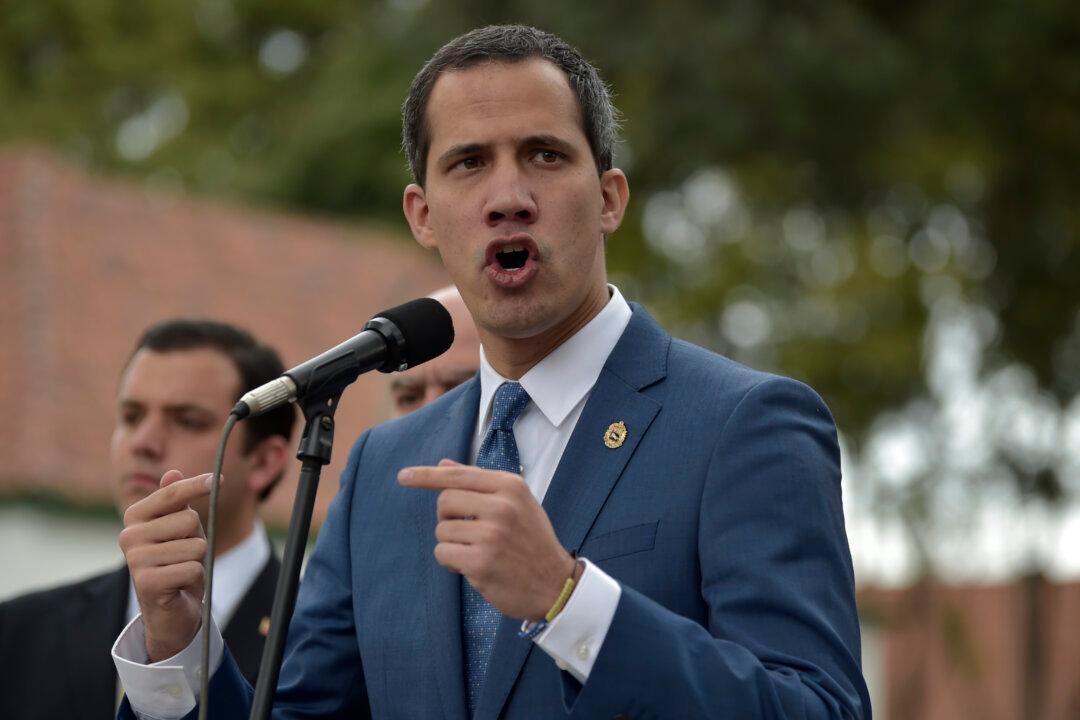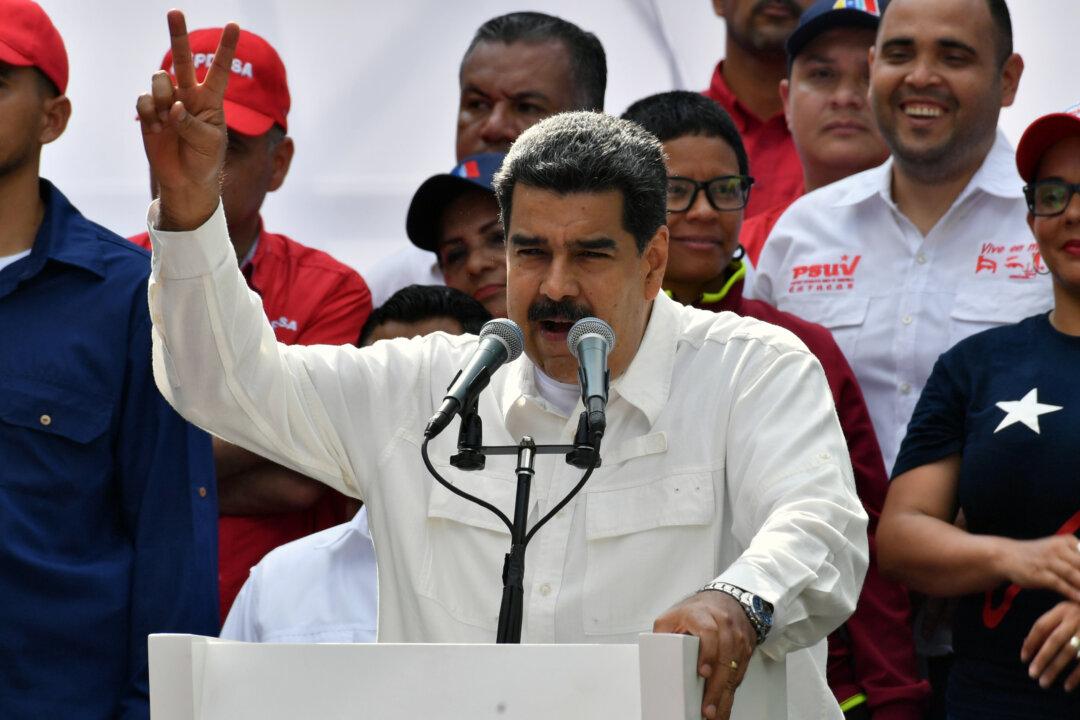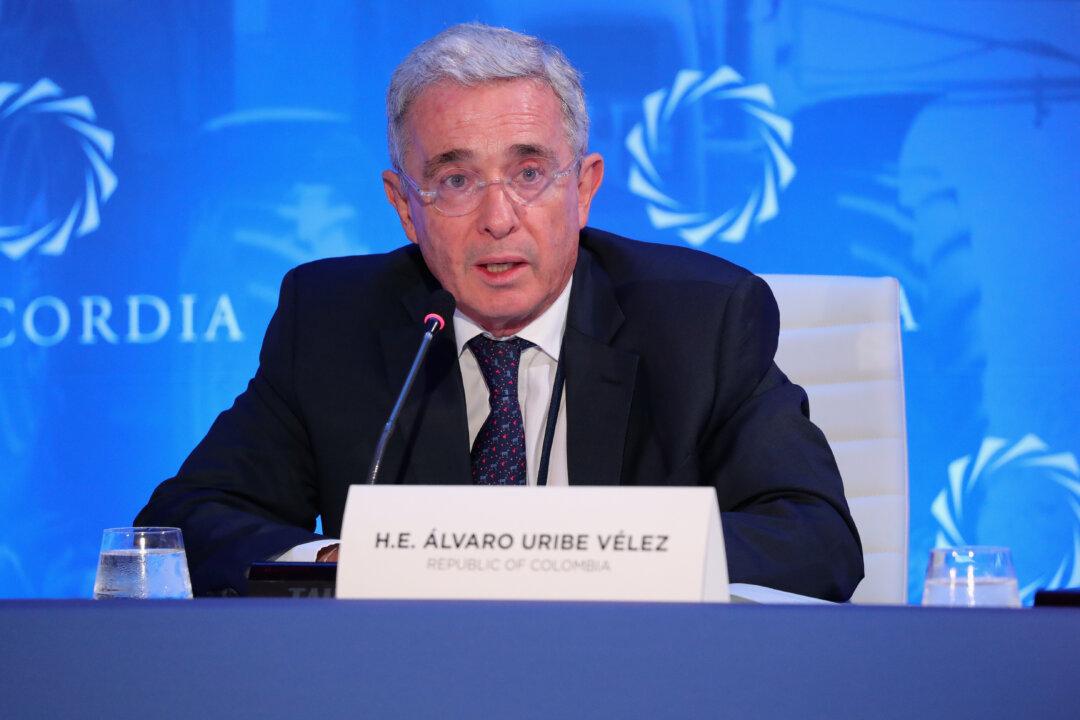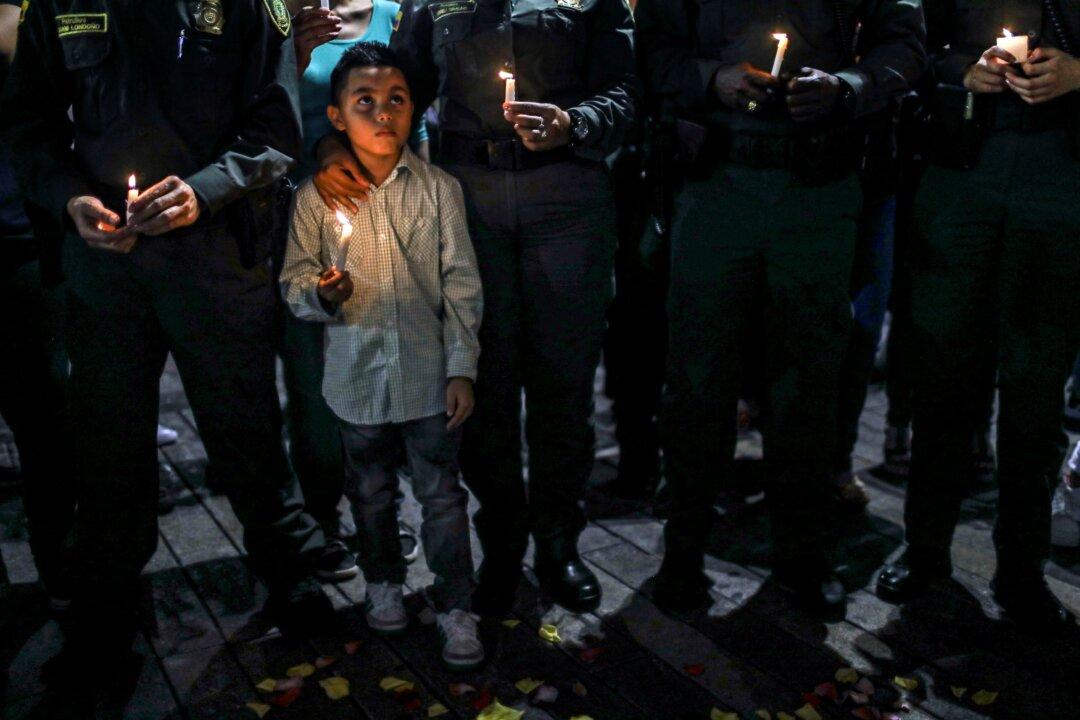CUCUTA/BOGOTA, Colombia—Vice President Mike Pence joined regional leaders from across Latin America and Canada on the morning of Feb. 25 to denounce the blocking of aid into Venezuela and announce new sanctions against Venezuelan regime leader Nicolas Maduro.
The meeting of the Lima Group of nations formed to resolve the Venezuela crisis was the first since the failed push to get U.S.-donated aid into Venezuela, which resulted in aid trucks being pushed back and set on fire—widely reported to be done at the hands of pro-Maduro criminal groups.



